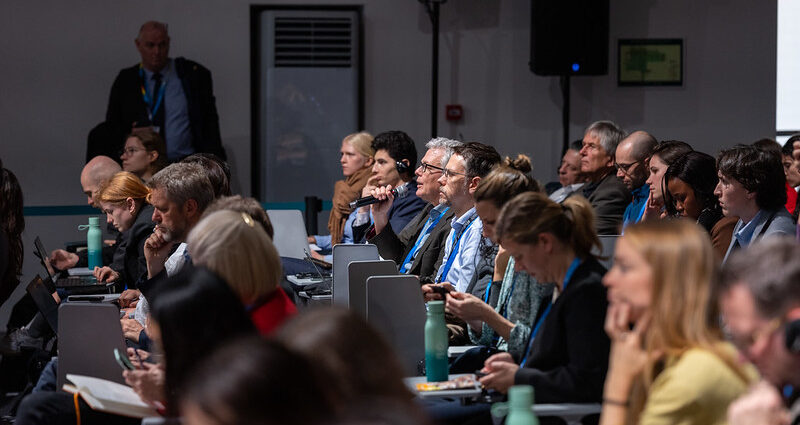
by WWF
November 25, 2024
The COP29 outcome risks setting back climate action at just the moment when accelerating it is most critical. After two weeks of tense and polarised negotiations, countries agreed a climate finance deal that does not come close to meeting the needs of developing countries. Additionally, this COP failed to send a strong signal on the need to rapidly reduce emissions and phase out fossil fuels.
“The world has been let down by this weak climate finance deal,” said Manuel Pulgar-Vidal, WWF Global Climate and Energy Lead, and former environment minister and COP20 President. “At this pivotal moment for the planet, this failure threatens to set back global efforts to tackle the climate crisis. And it risks leaving vulnerable communities exposed to an onslaught of escalating climate catastrophes. This is a serious blow to climate action, but it must not stall the solutions that are desperately needed around the world.
“The science remains the same — we must accelerate action in this decade to prevent climate change spiralling out of control. All national and corporate leaders have a responsibility to step up, go beyond the parameters of this deal, and deliver sufficient levels of finance to deliver the transformational changes needed. This bad deal must not hold us back. We need to invest in our collective future,” Pulgar-Vidal added. “WWF will keep working to help make sure this multilateral process, that has proved its resilience before, is strengthened and can deliver the results the world needs.”
Just this week, the G20 leaders reaffirmed the need to rapidly and substantially scale up climate finance from billions to trillions. The commitment of US$300 billion a year by 2035 falls far short of this ambition, will come too far in the future, and is not in line with what is needed to support vital climate action in developing countries.
At the last minute, a roadmap to scale up finance towards $1.3 trillion for developing countries was added to the text, but this gives little reason to be confident that this level of finance will be delivered. The incoming Brazilian presidency will need engagement from all parties to manage this roadmap process towards a meaningful outcome by COP30 in Belem to ensure substantial amounts of finance are mobilised.
“In the year countries are deciding their new national climate plans, it is unacceptable for COP29 to not send a strong message on the need to cut emissions and phase out fossil fuels, backed up by adequate finance,” said Fernanda Carvalho, WWF Global Climate and Energy Policy Lead, adding:
“Countries must not let this awful outcome detract from the urgent need to ramp up their emission reduction targets, press ahead with the energy transition and adapt to the consequences of rising temperatures. Unless developed countries go well beyond this finance target, making the $1.3 trillion Baku to Belém roadmap tangible, vulnerable communities will be increasingly exposed to devastating climate impacts and the window to limit global warming to 1.5oC will close.”
** **
This article was originally published by WWF and is republished here as part of an editorial collaboration with WWF.
Subscribe to our newsletter.
This article was originally published on IMPAKTER. Read the original article.


